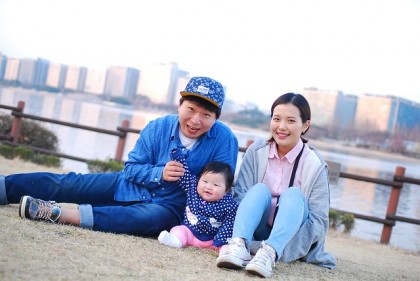Bruce Jenner and the Primordial Given
Devra Torres | Jun 4, 2015 | 11 cmts
What’s behind our newfound, headlong rush to embrace “gender reassignment”?
You might assume it’s just the latest link in a chain of hedonistic excess: the same old “If it feels good, do it” mindset, but really run amok this time. For example, from the desire for pleasure without marriage came the push for cohabitation. Or from the desire for marriage without commitment came the push for no-fault divorce. Or for pleasure without the trouble of bearing and raising all those babies, the push for the Pill.

A little further down the slippery slope, maybe you want pleasure without the hassle of even a temporary relationship, so you jump on the hook-up bandwagon. Or pleasure without forethought, so you push for the morning-after pill. Or pleasure without cost: co-pay-less birth control.
And so on.
I don’t mean the people who advocate or practice these things are that simplistic. I don’t pretend to see into their hearts. Every person has a story, and the more premature pigeonholing we attempt, the further we stray from the truth about anybody. But as you look along the progression of the history of ideas in search of a unifying thread, it might seem obvious that it’s hedonistic selfishness: chasing pleasure without responsibility, without hardship, without complications.
So does that account for the appeal of transgenderism ideology? I don't think so. Only a tiny fraction of people suffer from gender dysphoria. I don't think impulsive solidarity with them can account for the way enthusiasm for a chemical-surgical fix for their troubles has taken the movers and shakers of public opinion by storm.

And if hedonism were behind it, you'd see at least some lip service to the findings on "reassignment's" failure to bring lasting relief.
I think it has a lot more to do with rejecting "the given." It’s not that we rebuff this or that reality because it’s inconvenient, or painful, or not to our liking. More than that, we reject the whole idea of anything at all being given to us—just as it is, non-negotiably, non-adjustably—rather than created or constructed by us. If something is "given," you can tinker with it all you like, play make-believe all you like, but it remains what it is.

Being male or female is that kind of thing, but still, we want to meet it with "Oh, yeah? We'll see about that!"
Reality as we find it is “the given” in two senses:
- It’s given, as in: that’s just the way things are. Like 2+2=4. Or "Given the state of our political life, these are the candidates we have to choose from." Resign yourself. "Accept the things you cannot change."
- But there's also a more heartening meaning: it’s “given” because it's a gift. And not just any gift, but something valuable, custom-designed, particularly for you.
These reflections were inspired by an excellent talk which I thought was by then-Chief Rabbi of France Gilles Bernheim. (R. R. Reno has details about the true authors here, in his apology for unwittingly running plagarized material it in First Things, but as he points out, "the essay's arguments aren't any less true for having been plagarized.") I've written about the talk here and here. It was about calling same-sex unions "marriage," but it's very relevant. It calls sexual difference “a fact of nature infused with spiritual intentions.”
As the author puts it:
I am one of those who believe that a human being is not an autonomous construction with no given structure, order, status, or role. I believe that the affirmation of freedom does not imply the negation of limits and that the affirmation of equality does not imply the leveling of differences. I believe that the powers of technology and of the imagination do not require that we forget that being is a gift...
Sometimes a gift doesn't feel like a gift. Sometimes we need some kind of powerful healing before we can experience "the given" as a gift, rather than a predicament.
I bet that's true of all of us, in one way or another. And I think trying to rejoice in "the given" is probably futile unless we can come to know and trust the Giver.


Comments (11)
Katie van Schaijik
Jun 4, 2015 4:21pm
I agree with you and the Rabbi that there is a rejection of the given at the bottom of the current transgender craze.
At the same time, I am sincerely wondering where all the gender confusion these days is coming from. It seems to involve a lot of real and terrible suffering. Could there be a physical component? (All that estrogen in the water supply?) Is it all down to the breakdown of the family and trauma in childhood?
I'm also wondering about how best to deal with it. To me, gender-reassignment surgery seems like a very dubious course at best. And some Christian approaches have been justly discredited.
It's very perplexing.
Devra Torres
Jun 4, 2015 4:41pm
Well, for one thing, quite possibly there's a lot less gender confusion than you'd think from the coverage. It turns out, for instance, that American's think 25% of the population is gay, whereas it's more like 1%. But it certainly seems plausible that it's increasing, for all kinds of reasons. Estrogen in the water might really be a factor. It's so hard to get a straight story on that topic. And of course with so many children being raised without one or both parents, all kinds of confusion is to be expected.
I was meaning to address not so much where the confusion itself is coming from but where the opinion-makers' enthusiasm for this particular solution is coming from.
Sam Roeble
Jun 4, 2015 5:05pm
My good friend is a microbiologist at University of Minnesota. The Estrogen in the water theory is an urban legend that is factually unfounded. The theory is that birth control going through the sewer system has turned fish populations into all females or androgynous, but this is unfounded (not to excuse birth control in any way).
Sam Roeble
Jun 4, 2015 5:07pm
Joseph Ratzinger and the CDF have a better explanation of gender confusion (namely the temptation of fallen humanity to erase all difference between men and women and God): [url=http://www.vatican.va/roman_curia/congregations/cfaith/documents/rc_con_cfaith_doc_20040731_collaboration_en.html]http://www.vatican.va/roman_curia/congregations/cfaith/documents/rc_con_cfaith_doc_20040731_collaboration_en.html[/url]
Sam Roeble
Jun 4, 2015 5:09pm
from doc above: "their differences tend to be denied, viewed as mere effects of historical and cultural conditioning. In this perspective, physical difference, termed sex, is minimized, while the purely cultural element, termed gender, is emphasized to the maximum and held to be primary. The obscuring of the difference or duality of the sexes has enormous consequences on a variety of levels. This theory of the human person, intended to promote prospects for equality of women through liberation from biological determinism, has in reality inspired ideologies which, for example, call into question the family, in its natural two-parent structure of mother and father, and make homosexuality and heterosexuality virtually equivalent, in a new model of polymorphous sexuality."
Sam Roeble
Jun 4, 2015 5:11pm
Scary stuff: "its deeper motivation must be sought in the human attempt to be freed from one's biological conditioning.2 According to this perspective, human nature in itself does not possess characteristics in an absolute manner: all persons can and ought to constitute themselves as they like, since they are free from every predetermination linked to their essential constitution. "
Katie van Schaijik
Jun 4, 2015 5:36pm
I don't know if it's just an urban myth. Stories like this seem pretty convincing to me.
I agree with Ratzinger on the "powers and principalities" level. I guess I'm just wondering about it on the psychological and physiological levels.
For instance, I know more than one devoutly religious, committed Catholic who finds himself homosexual. They are not cases of people rejecting their biology; they're cases of people at odds with their biology, much to their misery.
It's hard to understand.
Devra Torres
Jun 5, 2015 10:55am
Yes, and just to clarify: I don't at all mean that it's the people who suffer from the confusion who meet "the given" with "Oh, yeah? We'll see about that!" I mean it's more the people who shape the ideology behind the conventional wisdom--but then I think they themselves are being used by principalities and powers. I think they're the pawns of the one who says "I will not serve"--that is:"I will not serve the given order and structure of nature, because I will not serve the Giver." I think the principalities and powers tip their hand by making that the one consistent feature of all the tendencies and trends they persuade people to push. They're not so much pro-freedom or fairness or creativity or even selfishness as they are anti-Reality.
Sam Roeble
Jun 5, 2015 11:06am
Here's Pope Francis: "For example, I ask myself, if the so-called gender theory is not, at the same time, an expression of frustration and resignation, which seeks to cancel out sexual difference because it no longer knows how to confront it. Yes, we risk taking a step backwards. The removal of difference in fact creates a problem, not a solution. In order to resolve the problems in their relationships, men and women need to speak to one another more, listen to each other more, get to know one another better, love one another more. "http://w2.vatican.va/content/francesco/en/audiences/2015/documents/papa-francesco_20150415_udienza-generale.html
Katie van Schaijik
Jun 5, 2015 3:43pm
I love Pope Francis and agree with him entirely. We need "to speak to one another more, listen to each other more..."
Gary Gibson
Jun 7, 2015 12:33pm
I know many male homosexual men: friends, co-workers, neighbors, and relatives. Almost all of them can cite an early traumatic experience in their lives before puberty that wounded them in a deep and lasting way- the rejection or absence of a father, a domineering mother, sexual abuse, or negative remarks about their bodies, physique, or manliness. Gender rejection and feelings of insecurity seem to be at the root of their confusion.
Father John Harvey, the founder of "Courage", which ministered to men with unwanted same-sex attraction, found that many of these men could be helped to mitigate and lessen these feelings up until the age of 30. But those were the exception. There are no "cures" per se, but a willingness to be open to change often made it possible to cultivate their innate but damaged heterosexual desires.
I have known men who overcame their homosexual tendencies, not completely, but enough to initiate and succeed in forming healthy relationships with women, and even marry. Others find they cannot do that. Some give up and go back to the "gay" lifestyle. A few are able to embrace a life of chastity, which really does require great courage, especially in our sex-saturated culture.